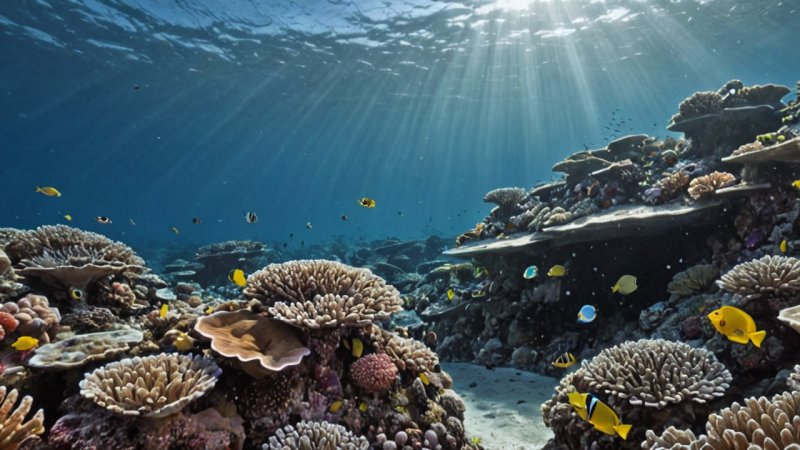The oceans cover more than 70% of our planet's surface and play a critical role in regulating the Earth's climate. They absorb vast amounts of carbon dioxide, store heat, and influence weather patterns. However, human activities have begun to alter the delicate balance of ocean ecosystems, threatening their ability to mitigate climate change. Understanding the complex interactions between oceans and climate is essential in addressing global warming and ensuring a sustainable future.
1. Carbon Dioxide Absorption
The oceans act as a major carbon sink, absorbing approximately 30% of the carbon dioxide emitted by human activities. This process helps to reduce the concentration of greenhouse gases in the atmosphere, thereby moderating global warming. However, increased CO2 absorption is leading to ocean acidification, which threatens marine life.
2. Heat Distribution
Oceans play a crucial role in absorbing and redistributing heat across the planet. Ocean currents transport warm water from the equator to the poles, while cold water moves from the poles back to the equator. This heat exchange helps regulate global temperatures and weather patterns, influencing everything from hurricane formation to monsoon cycles.
3. Influence on Weather Patterns
Oceans significantly impact atmospheric conditions, which in turn shape weather patterns. For example, phenomena such as El Niño and La Niña, which arise from variations in ocean temperatures, can lead to extreme weather events, including droughts, floods, and hurricanes. Understanding these patterns is crucial for predicting climate-related disasters.
4. Biodiversity and Ecosystem Services
Healthy oceans are teeming with biodiversity, providing vital ecosystem services such as fishery resources, coastal protection, and tourism. Protecting ocean biodiversity is essential not only for the marine food web but also for the communities that rely on these resources for their livelihoods and well-being.
5. Climate Change Mitigation Strategies
To enhance the oceans' role in climate regulation, it is imperative to adopt effective climate change mitigation strategies. This includes reducing greenhouse gas emissions, protecting marine habitats, and investing in carbon capture technologies. Collaborative efforts across nations are essential to ensure the health of our oceans and, consequently, the climate.
6. Marine Protected Areas (MPAs)
Establishing Marine Protected Areas can help preserve critical marine ecosystems. MPAs protect biodiversity and enhance the resilience of ocean habitats to climate change. They can also support sustainable fisheries and promote research into ocean health.
7. Restoration of Coastal Ecosystems
Restoring coastal ecosystems, such as mangroves, salt marshes, and seagrasses, can enhance carbon sequestration and protect shorelines from erosion. These ecosystems serve as natural buffers against storms and rising sea levels, making them vital in climate adaptation efforts.
8. Sustainable Fishing Practices
Implementing sustainable fishing practices helps maintain balance in marine ecosystems and prevents overfishing. This approach not only sustains fish populations but also supports the livelihoods of communities dependent on fishing. Sustainable practices can lead to healthier oceans, which are better equipped to regulate climate.
9. Public Awareness and Education
Raising public awareness about the role of oceans in climate regulation is crucial. Educational campaigns can encourage individuals and communities to engage in conservation efforts and support policies that protect ocean health. Understanding the connection between oceans and climate can drive action at all levels of society.
10. International Collaboration
Addressing the challenges facing our oceans requires international cooperation. Collaborative research initiatives, policy agreements, and shared resources can enhance our understanding and protection of ocean ecosystems. Countries must work together to implement strategies that ensure the health of oceans globally.
In conclusion, oceans are integral to climate regulation, influencing weather patterns, absorbing carbon dioxide, and supporting biodiversity. By adopting sustainable practices, restoring ecosystems, and fostering international collaboration, we can protect our oceans and, in turn, our planet's climate. The health of our oceans is directly linked to the health of our climate, making it imperative to prioritize their preservation and restoration.






